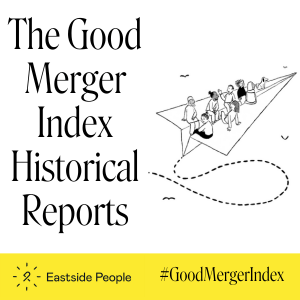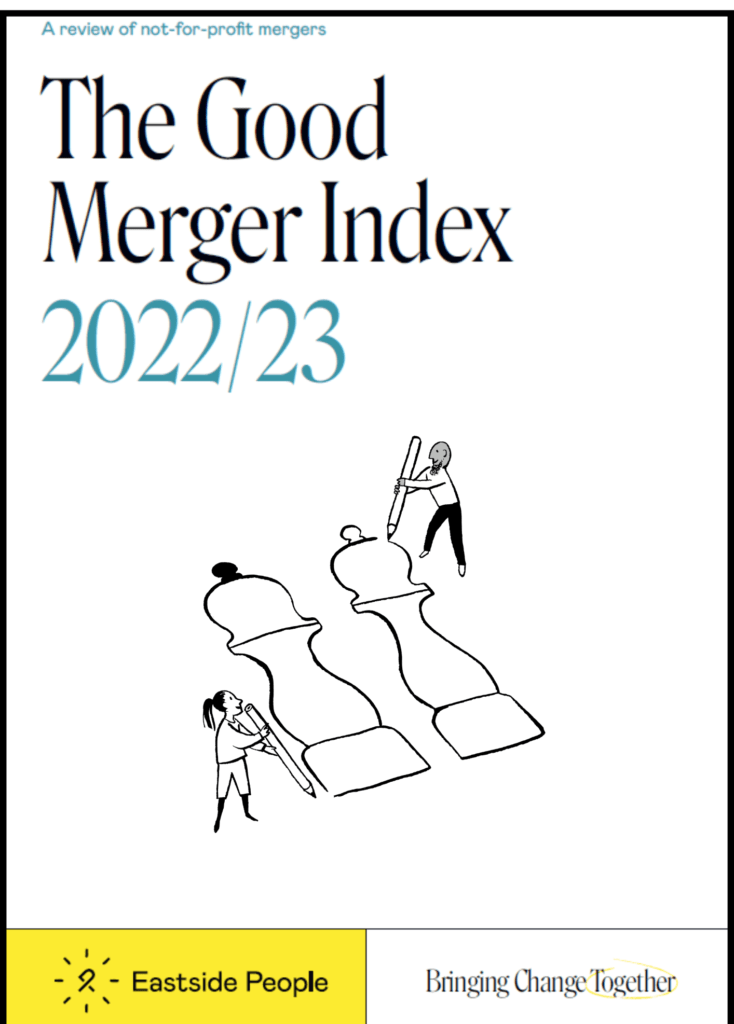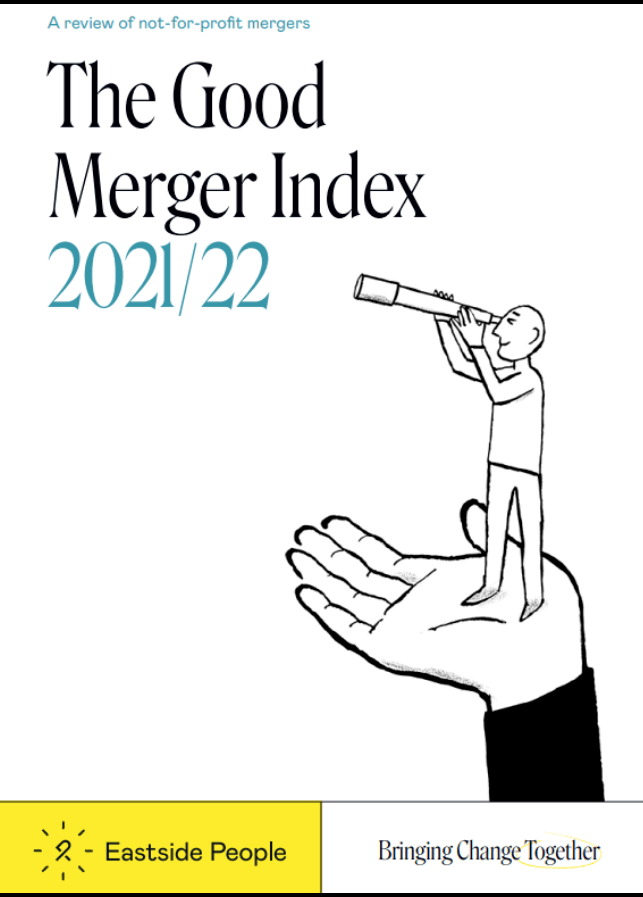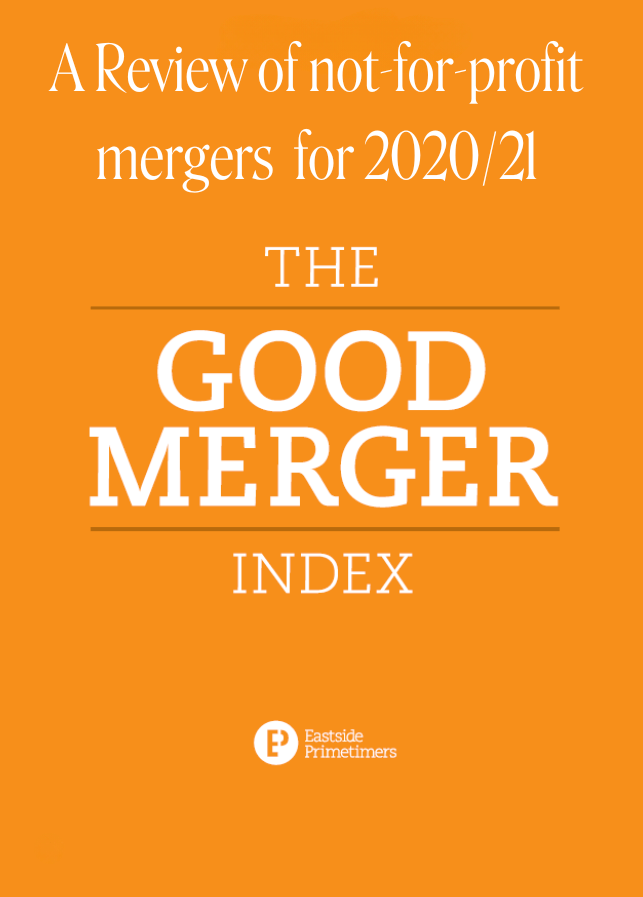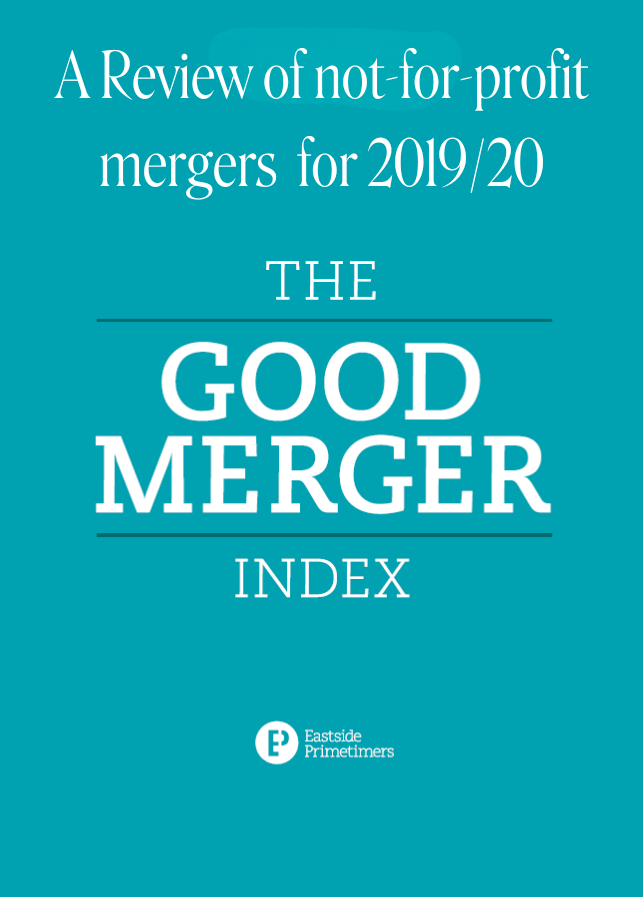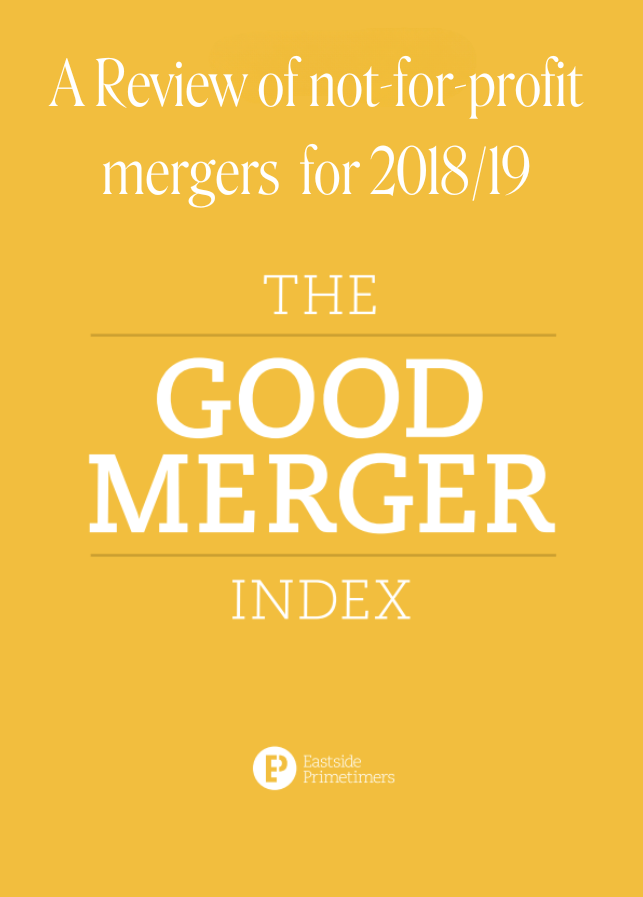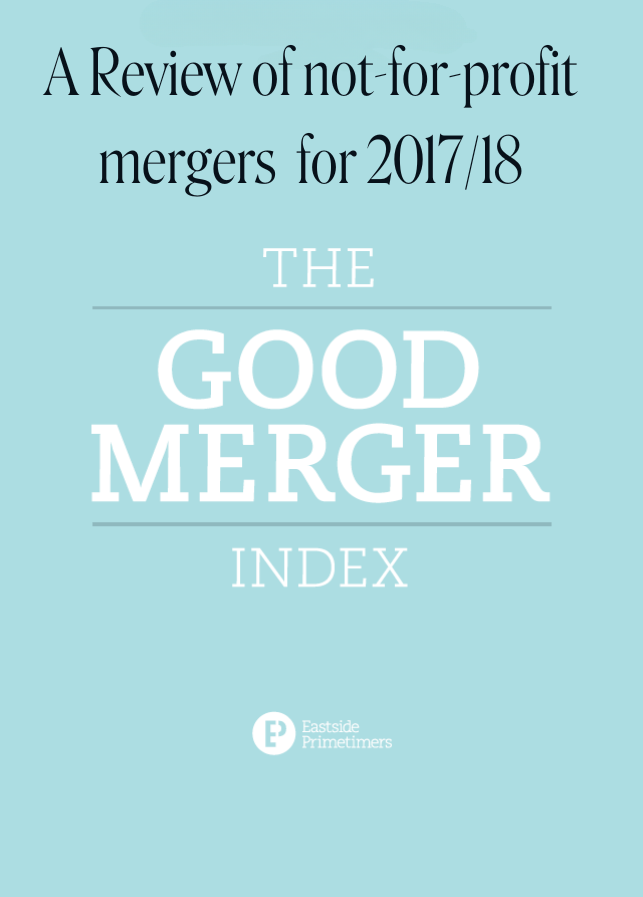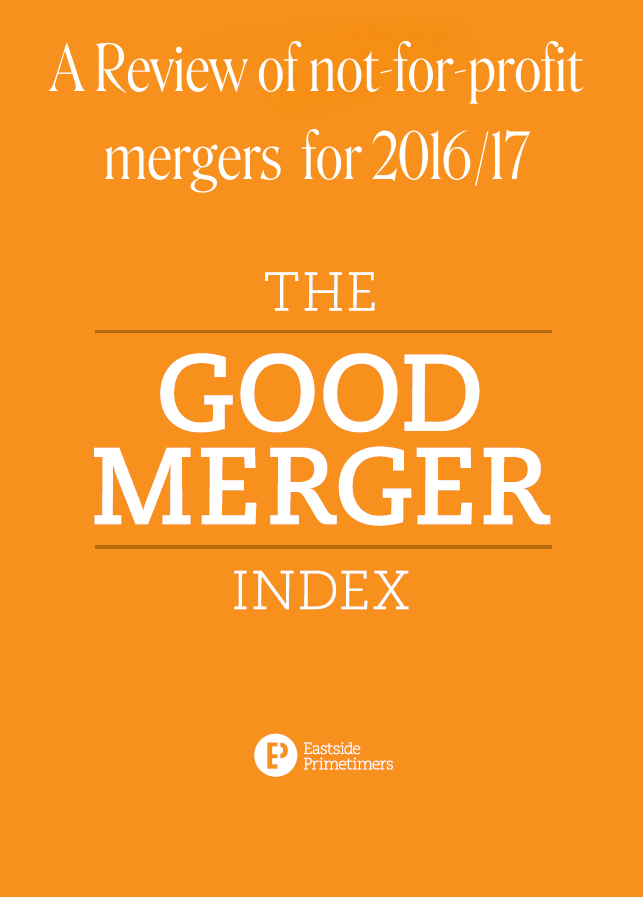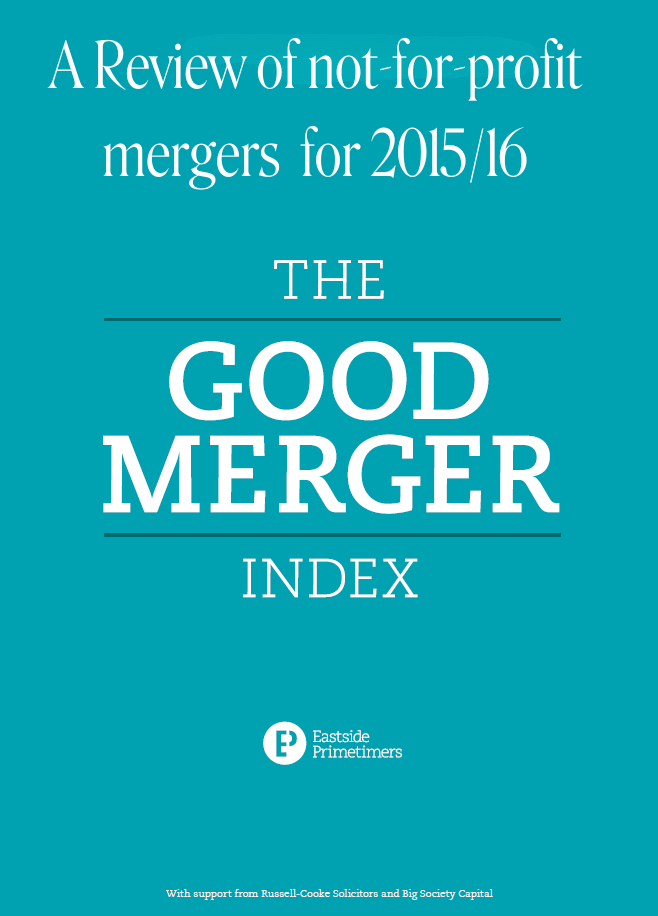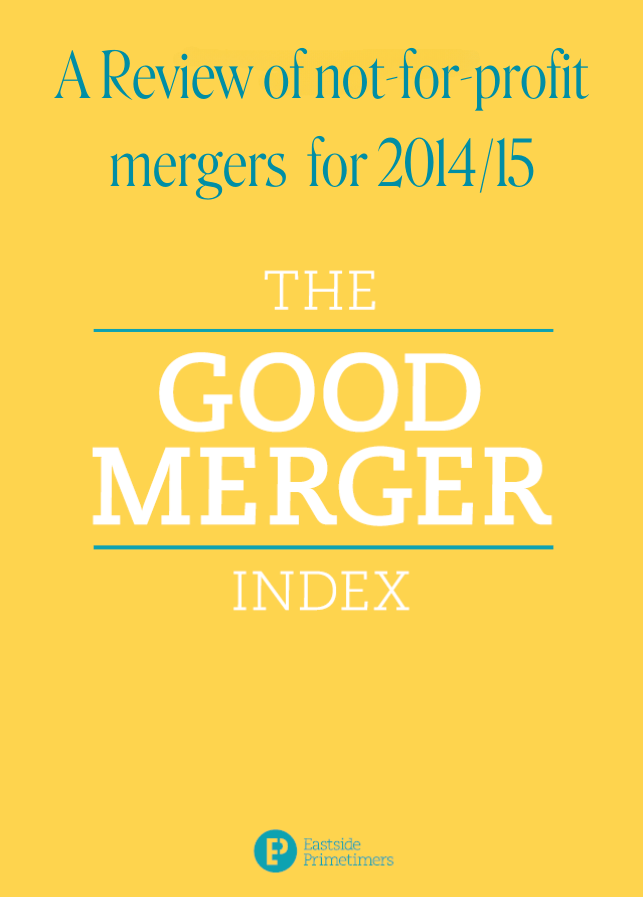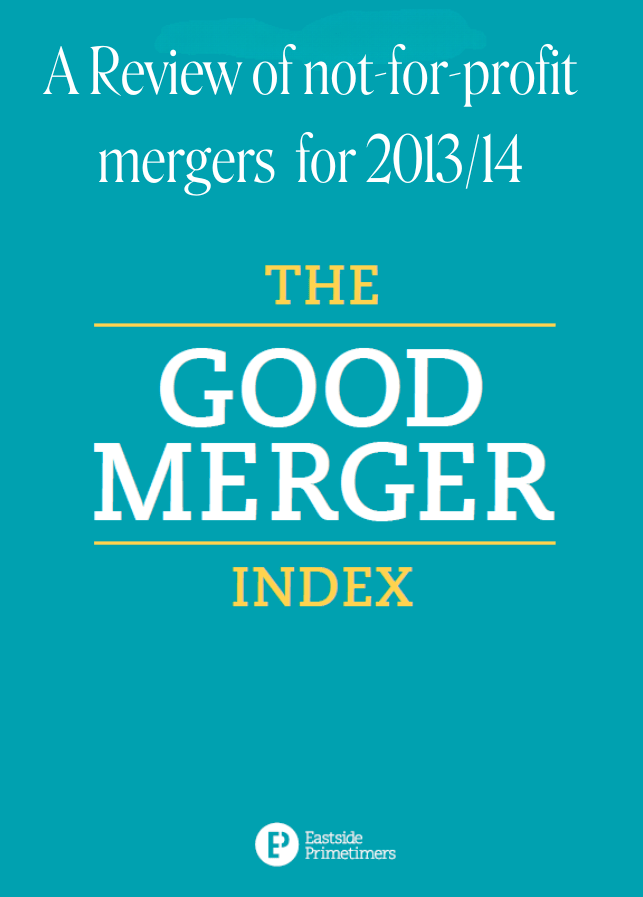Information about charity mergers
The Charity Governance Code (section 1.5.2), developed by a steering group, with the help of over 200 charities, individuals and related organisations, recommends that trustees consider the benefits and risks of partnership working and merger especially when other organisations are fulfilling similar charitable purposes more effectively and/or if the charity’s viability is uncertain.
Eastside People has been tracking charity and not-for-profit mergers since 2013 with our first Charity Good Merger Index report finding that charities involved in mergers were turning over collectively £960m, or some 2% of total voluntary sector income. During that time, more than 32,000 employees, or 4% of the sector’s workforce, were affected by being part of a major strategic change.
The 11th edition of the Charity Good Merger Index (2023/24), the review of charity mergers in England and Wales was launched on 12th March 2025. After 2 years of decreasing numbers, this year’s report has identified significant increases in both the number and value of charity mergers. The 63 mergers involving 131 organisations is a 31% increase from 2022-23 and a 24% increase from 2021-22.
The significant involvement of larger organisations in mergers contributed to a remarkable year-on-year growth in the overall value of deals. In 2023-24, the total value of these deals reached £192 million, representing a huge increase of over 500% compared to the previous year.
The Good Merger Index of charity mergers for 2022-23 was published on 7th February 2024. Our research found record low numbers of charity mergers despite charities struggling with increasing demands and costs. Only 48 charity mergers between 96 organisations recorded during the 2022/23 Good Merger Index (GMI) Research period despite Eastside People seeing a 70% rise in the number of enquiries from charity leaders looking for expertise in managing and delivering merger and partnership projects
The charity Good Merger Index for 2020-21, focused on the first year of the pandemic and how the social sector began to respond. Growth in the number of smaller organisations (turnover less than £1m) involved in merger was significant, with the number 67% higher than the average of all previous years. This indicated that those with limited options for mitigating the effect of financial stress and rising demand, sought safe harbour for their services and beneficiaries. Meanwhile, larger organisations, better able to weather the storm, appeared to have stopped or deferred more complex merger activity.
The 2019-2020 charity merger research report included an expanded look up to October 2020 to capture information about the impact of COVID-19. We found a ‘stable’ picture, suggesting the pandemic was not thwarting charity mergers. We did note that a substantial chunk of charity consolidation was timed for the turn of March/April and the new financial year. 20% to 25% of all charity mergers are typically announced or finalised around this time. In 2021, we saw 17 mergers in this period (16 in 2020).
In 2018-19, the charity merger research confirmed that the number of not-for-profit organisations engaging and participating in mergers continued to be negligible. Only 58 mergers were completed from 30th April 2018 to 1st May 2019 out of 168,000 registered charities (more when you add social enterprises).
Similarly, the trends of organisations merging or being taken over while in financial “distress” continued, with 69% of transferees in surplus, and over half of transferors in deficit.
Our main finding for the 2017-18 charity merger report was that 81 mergers occurred, involving 154 organisations, with a total income of £1.3bn. £266.6m of value was transferred from one organisation to another, either through an existing organisation being taken over or becoming a subsidiary, or through the formation of a roughly balanced organisation from two equal merger partners. 91% of this value was concentrated amongst the largest 20 mergers – a reminder that charity merger activity is top-heavy.
The 2016-17 charity merger report found that that charity mergers remained rare, despite strong examples of parts of the sector responding to the need for change. 70 mergers involving 142 organisations were seen, representing about 0.09% (of 167,000 charities – despite common discussion about duplication, 2016/17 also saw a net increase of about 1,700 (1.03%) entities registering with the Charity Commission.
Over the period of the 2015-16 charity merger report, despite increased discussion about charity mergers, consolidation remained static, with only 116 organisations (0.07% of over 163,000 registered at the time and £158m of income) merging. We also found that 61% of the smaller charities that merged or were taken over were in deficit (up from 53% in our last Index), while those acquiring tend to be healthier, demonstrating that mergers are still often a ‘rescue’ move, rather than a strategic one.
The biggest merger saw the creation of the Masonic Charitable Foundation, a mega-merger of four previous charities with a notional value of £82m.
In our 2014-15 merger research, we were surprised by the relatively low number of deals given the scale of the challenges faced by the sector. Among charities and social enterprises, 129 organisations out of over 160,000, undertook 61 deals. This was also broadly in line with the level of consolidation we found in the 2013/4 Index, showing merger activity hasn’t increased. Out of a 1,700-strong sector 16 housing associations concluded 8 major deals.
Learn more about our Partnership and Merger Charity Consultancy Services.
What’s in the latest Good Merger Index report?
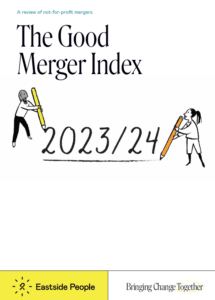
Download Historical Charity Good Merger Index Research Reports:


